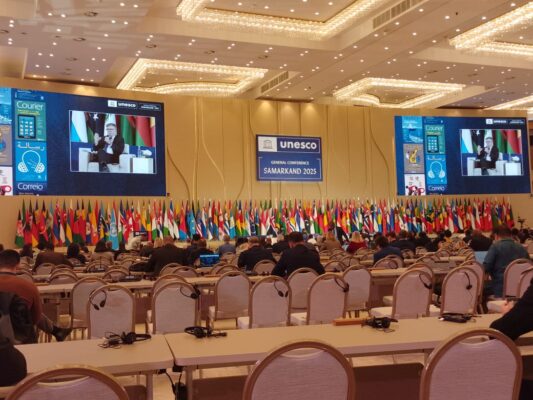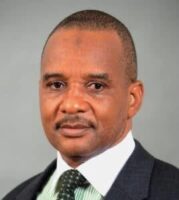Educators, researchers and policymakers from around the world have gathered in Samarkand for the 2025 edition of the United Nations Educational, Scientific and Cultural Organisation general conference to discuss the future of education in the artificial intelligence age.
Read Also
- Congo seeks Nigeria's support for diplomat to lead UNESCO, as VP Shettima receives PM Makosso
- Egypt, Greece agree to protect status of Mount Sinai monastery after court verdict
- FG assures UNESCO of autonomy, sustainability of category II MIL Institute
- Iran declares readiness to conduct joint research, excavations with Armenia
According to a statement obtained by TVC on Monday, the conference held in Samarkand, Uzbekistan, themed “The Future of Education in the Age of Artificial Intelligence (AI)” brought together professionals from diverse backgrounds who explored how technology, truth, and culture intersect to shape the future of learning.
Speakers highlighted that education systems must urgently adapt to a world transformed by artificial intelligence, social media, and rapid digitalisation. They noted that while technology has created unprecedented access to information, it has also exposed societies to misinformation, disinformation, and declining attention spans among students.
Professor Svein Stolen, in his address, emphasised the need to balance digital innovation with traditional learning values.
“Education is more than acquiring skills. It is about creating environments that encourage critical thinking, dialogue, and respect for diverse opinions,” he said. “While digital tools are essential, we must not lose sight of the classroom’s foundational role in nurturing empathy, tolerance, and peace.”
He warned that overreliance on short-form digital content risks oversimplifying learning and weakening students’ ability to engage deeply with knowledge.
Other Professors also spoke on behalf of youth advocates, calling for a “diplomacy of truth” to counter cultural bias and misinformation in the digital space.
“Truth is a global public good,” he stated. “We must ensure that young people, especially in Africa, are not silenced or marginalised by biased algorithms.
UNESCO must lead efforts to promote freedom, digital equity, and cultural inclusivity.”
He further urged UNESCO and its member states to invest in “educational laboratories” that empower young people to co-create solutions and participate in international cooperation. “African youth should feel part of a global community of creators,” he added, emphasising the need to trust young innovators and provide them with meaningful opportunities.
Delegates also underscored the importance of open science and universal access to research. Scientists were encouraged to make their findings publicly available to enhance global knowledge-sharing and transparency. Universities, they noted, remain vital meeting points for dialogue, discovery, and cultural understanding under UNESCO’s educational mandate.
Another key highlight of the debate was the call to address gender inequality in STEMM (Science, Technology, Engineering, Mathematics, and Medicine).
Participants emphasised the need for stronger role models, mentorship, and initiatives that inspire young girls to pursue scientific careers.
“We must ensure that every girl believes she can become a scientist.
UNESCO has a crucial role to play in creating those pathways,” one delegate said.
The session concluded with a powerful reflection on the shared human values that unite societies amid technological change.
“What keeps us human is our collective will to speak, learn, and connect,” the closing statement read. “Through truth, education, and compassion, we preserve our world not merely through declarations, but through meaningful actions.





